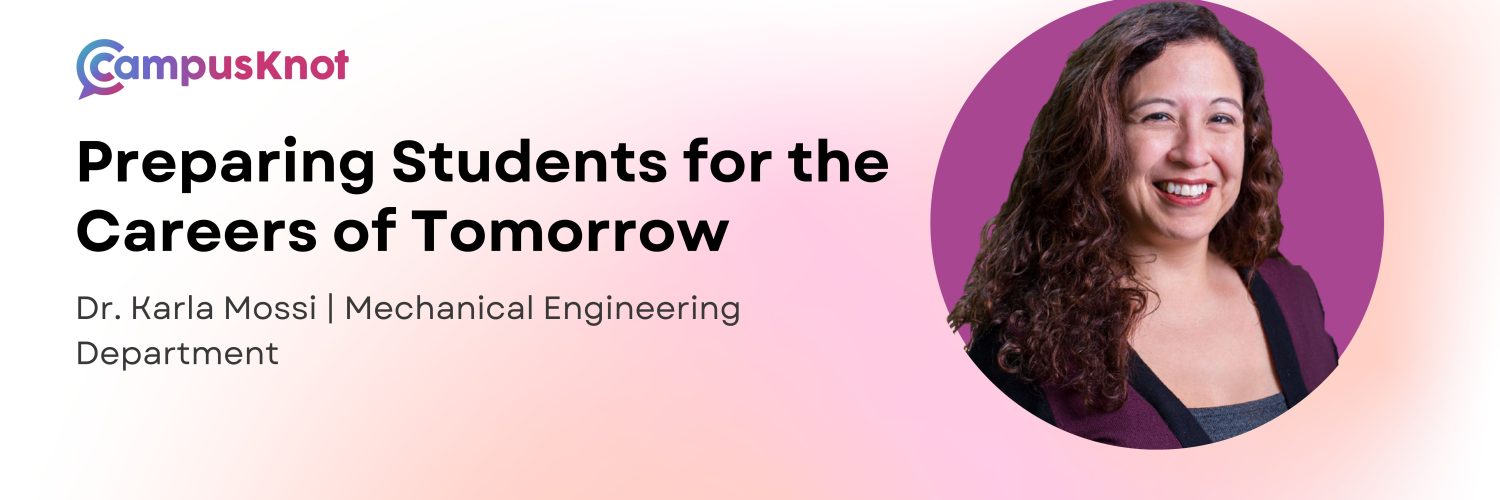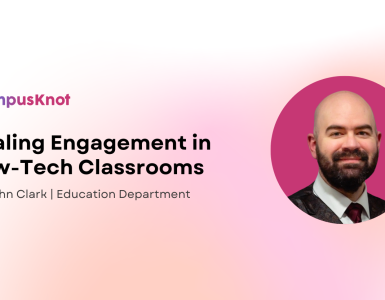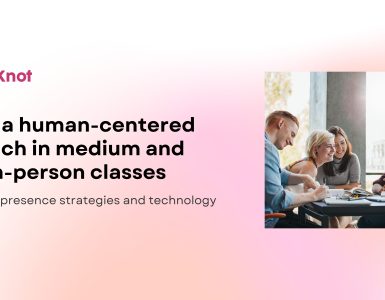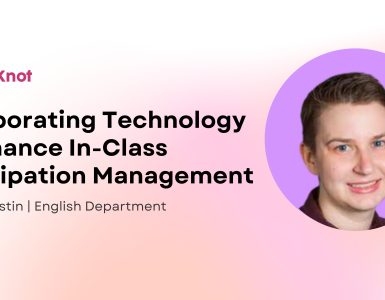- Course: Introduction to Mechanical and Nuclear Engineering
- Number of students: 160
- Modality: Online
- Sections: 1
Course Context:
Dr. Karla Mossi is an instructor of Mechanical and Nuclear Engineering. Her class was taught once a week. This introduction course was made up of first-year students. This course gives students an overview of their future careers and what to expect. Her class was made up of 160 freshman students.
Preparing students for the careers of tomorrow
Students were asked to attend lectures once a week, and they were encouraged to communicate with peers inside CampusKnot. During every live lecture, Dr. Mossi will invite guest speakers who would cover topics related to the careers of the future. Some of the topics of conversation revolved around virtual reality, the process of design, and the decision-making process at work.
Dr. Mossi encouraged her students to post questions about the speakers inside the CampusKnot feed. The most significant advantage of relying on a feed instead of a web conferencing chat is that students can continue communicating even after the session has ended.
Students were given a quiz at the end of every week to learn about their experiences during each presentation. She found students enjoyed giving their feedback inside the CampusKnot quizzes “it is easy for students to access it. Also, the cost to the student is minimal.” Dr. Mossi also published polls at once a week and found that students were much more engaged.
My professor gives out quizzes in class, and CampusKnot makes it so much more convenient.- Christian, Mechanical and Nuclear Engineering student.
Since the majority of the class is online, students get little to no interactions with one another. Through CampusKnot, Dr. Mossi was able to build rapport in her large class. The inviting and simple design makes it appealing to students to participate. In a survey given to Dr. Mossi’s students, 64% of students admitted CampusKnot helped them better participate in their online Mechanical and Nuclear Engineering class.
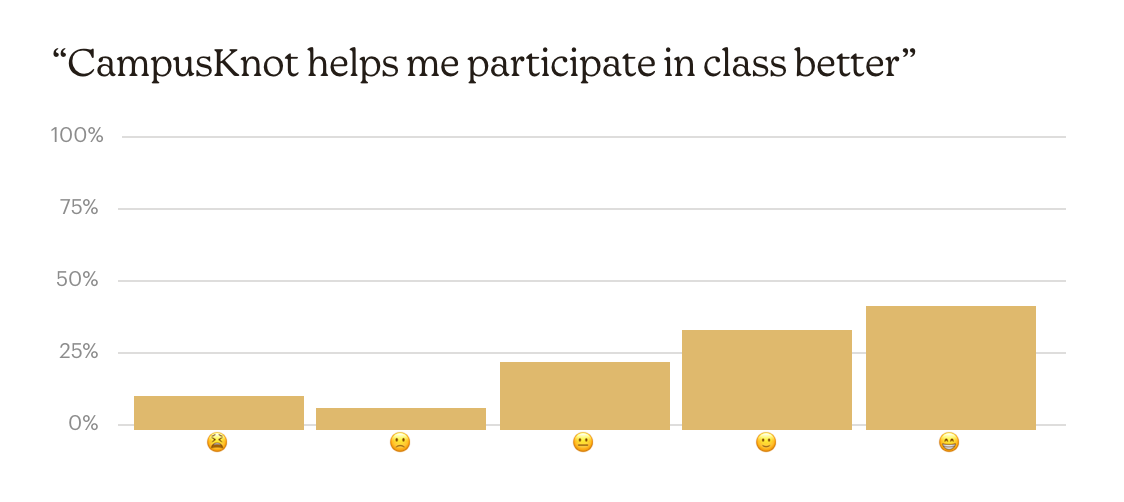
Outcomes:
- Essential outcomes Dr. Mossi gained (1) more participation; and (2) more students willing to speak up during and after large classes.
- She has seeing a higher retention rate in students’ major field of study since implementing technology.
- 64% of students admitted CampusKnot helped them better participate in their large online course.

